Key Information
CPD Hours: 42 hours
Course Length: Six weeks
Course Format: An intensive tutor-moderated online learning experience. Resources include online presentations, electronic course notes, case studies, videos, supplementary reading material and discussion forums with colleagues and the tutors
Enrol Now
This course may run again in the future. To register your interest please contact us.
Alternatively you can download and email using our Registration Form
Course Information
- Identification, husbandry requirements and handling of the most commonly presented species
- Common presentations in birds and reptiles and how to approach them, including case based scenarios
- How to successfully anaesthetise a bird or reptile
- Surgical techniques, critical care and analgesia
Are you perplexed by parrots, troubled by tortoises or stumped by snakes? Would you like to feel more confident when an unusual species appears on your consult list?
Birds and reptiles have become popular pets in the UK. They are frequently presented for veterinary care, often as emergencies. This course aims to help clinicians build confidence in their approach to the exotics case and to develop sound diagnostic and treatment plans based on the most up-to-date evidence. The course is suitable for both experienced and new graduate vets.
Why do this course?
If you are seeing birds and reptiles on an occasional or regular basis and wish to build your confidence in approaching these cases. If you want to update your knowledge and apply best practice to provide optimal care for these species.
Vicki Baldrey, BSc BVSc DZooMed (Avian) MRCVS
Senior Lecturer in Exotic Species and Small Mammal Medicine and Surgery
The Royal Veterinary College
Joanna Hedley, BVM&S DZooMed (Reptilian) DipECZM (Herpetology) MRCVS
Senior Lecturer in Exotic Species and Small Mammal Medicine and Surgery
The Royal Veterinary College
Relevant CPD courses you may find of interest
Rabbits, rodents and ferrets - medicine and surgery online
A practical approach to rabbit and rodent surgery
Webinar Plus: Exotics ophthalmology
Emergency and critical care for exotic species online
Recorded Webinar Series: Approach to wildlife casualties in practice
Webinar Plus: Clinical governance - quality improvement and fostering a supportive practice culture
Webinar Plus: Anthrozoology for veterinary professionals
Webinar Plus: Journal club with critical appraisal of the veterinary literature
Webinar Plus: Journal club - basic statistics for busy clinicians

